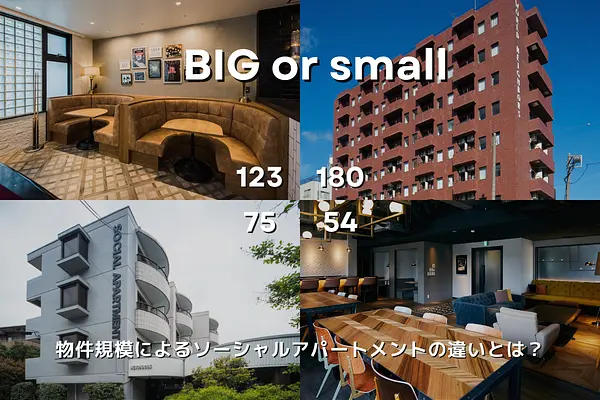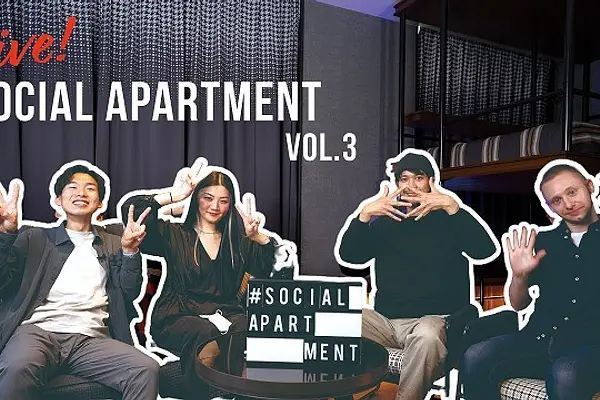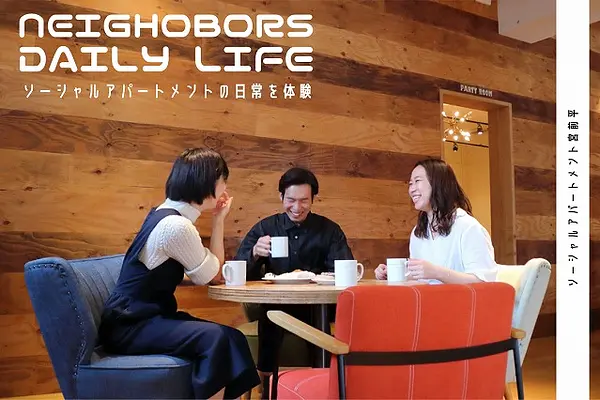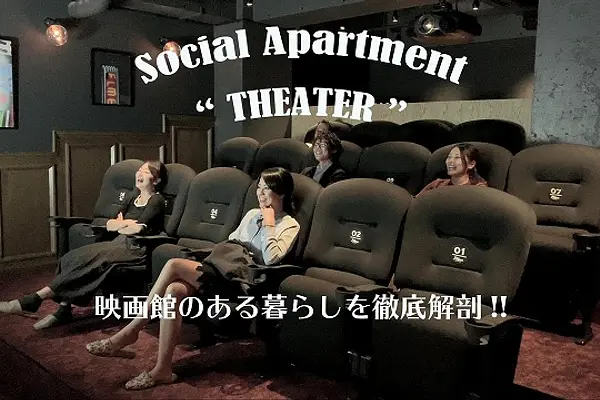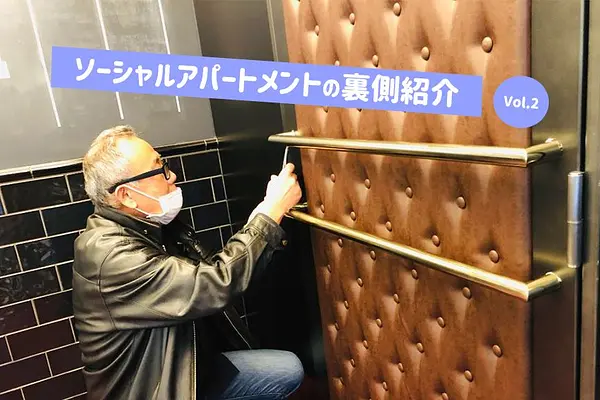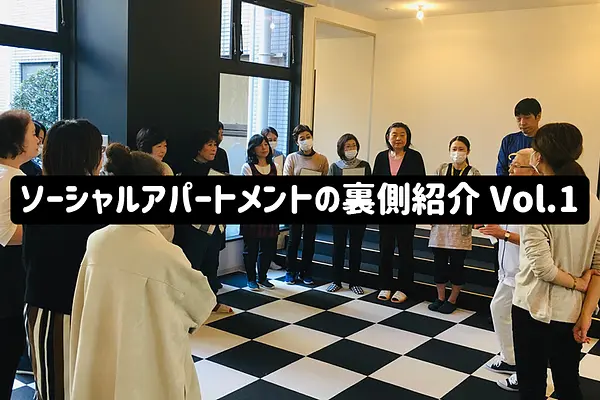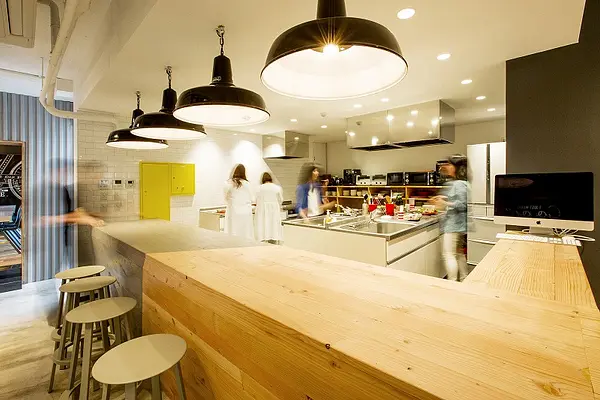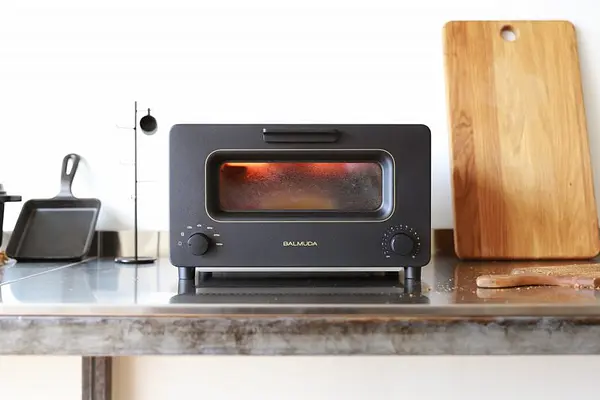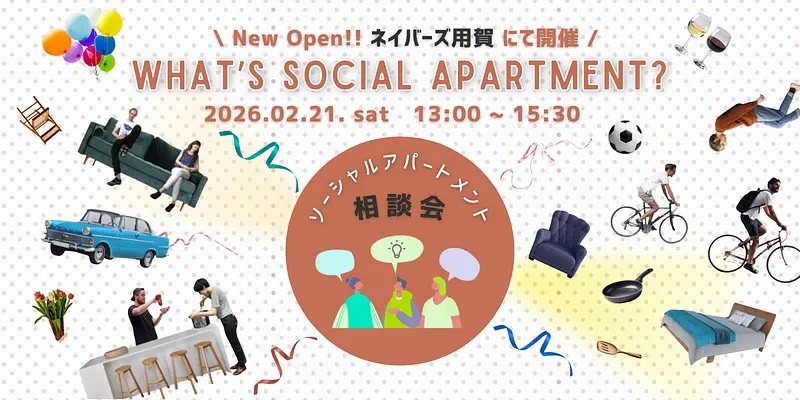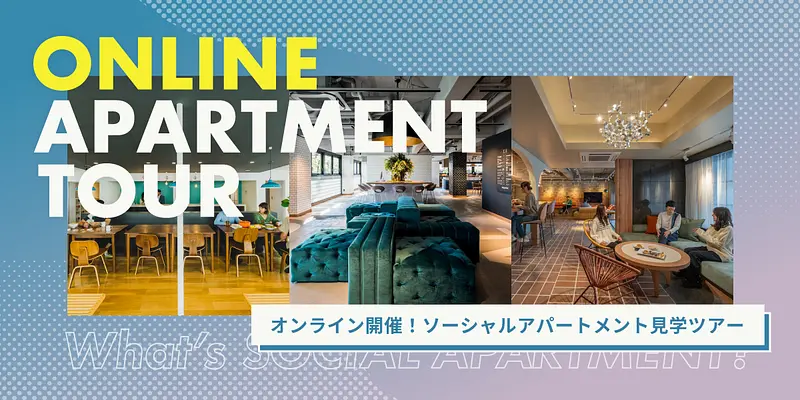Contribution】Neighbors Higashi-jujo Yupi vol.3|10 Things I did to make friends at Social Apartment
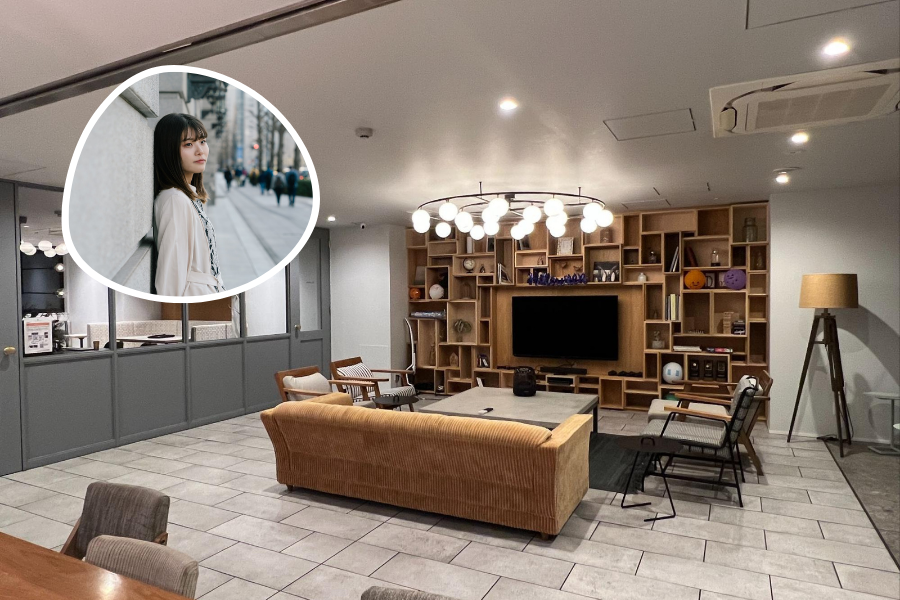
This is a column by Yupi, a resident of Neighbors Higashi-Jujo, who lives in Higashi-Jujo. This time, we would like to introduce Yupi, a resident of Neighbors Higashi Jujo.
Survival strategies for those with a "communicator's disorder" who are not suited for communal living
Today, I'd like to talk about what I've been doing to get used to living in a social apartment as a person with a communication disorder.
To be honest, this is what I was worried about the most when I moved into a social apartment. Whether or not I would be able to make friends...! (Laughs)
If I were the type of person who likes people and socializing, I probably wouldn't even think about it, but I'm a shy person by nature, and I don't like large groups of people. My best friend even said to me, "How could you move to a place like that?
That's why I've been trying to think of ways to create communication. I hope those of you who are not good at communicating will find this information useful.
1. Build up your profile
First of all, Social Apartment has a special application that allows you to check the profiles of residents in advance. Once you've checked out all the profiles, you can follow the lead of others and create your own!
When new people are registered, the current tenants are notified, so you may be surprised to find out that everyone is looking at the profiles of new people. If you write more about your job, likes, hobbies, etc., it is easier to find common ground.
For example, "You wrote that you like to go camping. I'm going camping next time, do you want to come?" It is not impossible that you may be invited.
2. Spend a month in the shared space
After moving in, I would ask them ice-breaker questions like, "How can I get settled in quickly? I was impressed by the fact that everyone I asked said, "I made sure to stay downstairs for the first month. Otherwise, they said, they would miss the timing to come down.
There are 104 people in the social apartment where I live, so of course there are people who don't come down at all.
Of those people, about 1/4 to 1/3 are "always there". If you want to fit in quickly, you should spend time in the lounge even if you don't have anything to do and try to talk to all of these "always there" people!
People change every year or two in the social apartments, so newcomers are a regular occurrence for everyone. If you see someone you don't know, ask, "Are you new here? What floor do you live on?" They will communicate with you.
I was so nervous on the first day that I don't remember much about it, but I ate in the common space instead of in my room. The more you eat in your room, the more chances you will miss to talk to everyone, so I recommend eating in the common space for the first month! Increase the number of simple contacts.
3. Don't try to complete everything in your room.
When spending time in a shared space, it is not a good idea to build too much comfort in your own room.
In particular, if you have a microwave oven or kettle, you can cook in your room, make tea, etc., which tends to make communicators stay in their rooms. In order not to lose the opportunity, I dared not to put them in my room. (I only bought a kettle in the winter)
I don't even have a desk, so I have to go to the common space when I want to work. I am a person who tends to be a recluse, but I can barely go to the common space because there are things I can't do unless I go there.
Here is a picture of my empty room
https://www.social-apartment.com/lifestyle/detail/240627column.yupi2
4. Decide what you are going to do and go to the shared space.
On the other hand, if you go to a shared space with the purpose of "Let's communicate! you may feel bored. This is because everyone has a purpose in life.
To eat. To work. To make coffee. To watch TV.
Especially during the daytime, many people are working, so if you put "conversation" as the purpose, you may interrupt what everyone else is doing, or you may feel depressed because you can't talk.
The good thing about social apartments is that you can naturally become part of the place even if you are spending time on your own. It is important to have the mindset that it would be nice if communication could happen in between cooking or working, so let's decide what we are going to "do.
5. "Introduce yourself first!
People with a communicative disorder tend to wait to be talked to, but ideally, it would be best if you could introduce yourself first!
That's why, when I first moved in, if I see someone I've never seen before, I always say, "Nice to meet you, right? My name is Yuki, and I moved in a few days ago. I'm Yuki, and I moved in a few days ago. (Most eloquent.) If anything, it was the second time I'd said hello.
Even if it was the second time, they would not be offended by such a greeting, so it was OK to ask, "I'm sorry, what was your name again? It is OK to ask, "Excuse me, what was your name? Then ask, "How long have you lived here? What floor are you on? If you can ask for additional information, you can keep the conversation going for about 5 minutes.
6. Write down the residents' information.
After you have heard everyone's name and information, it is recommended that you take notes!
Of course, you meet new people every day, so your memory will fade rapidly.
After a round of self-introductions, say, "Let me take some notes! and write it down. And later, when I think, "What is this person's name? If I hear new information, I add it to my notes.
I am not very good at remembering people's names and faces, so I tried to write down as much as I could. Now, I'm taking it easy and thinking, "I'll learn as I meet new people..." But in the early days, there is a lot of information, so you should rely on notes.
7. Dare to ask the tenants what you don't know!
When you have just moved in, there are many things you don't know!
Can I use the refrigerator in the common area, where are the scissors, what kind of furniture should I get first, are there designated garbage bags... you get the picture.
Social Apartment has a tenant manual available on My Page, so honestly, I could have just read it, but I dared to ask the tenants and try to create communication.
Because of this, I was able to learn information that was not in the manual and create opportunities to talk, so consulting with others is the strongest thing you can do.
8. Switch to tame language in the early stages
There are so many people in social apartments, young and old, men and women, that problems tend to break out about how to use "honorific/tame-speak. You don't know everyone's age, and some people don't feel comfortable using "tame-go" when they don't have an established relationship with the other people.
In my case, I came across a scene where a 24-year-old boy was talking frankly to a 30-year-old in the early stages of the program, and I decided to use the "tame" language because I thought "hierarchical relationships and honorifics are not respected here..." Of course, the social apartment where I live has its own rules, too.
Of course, it may depend on the social apartment you live in, but my firsthand feeling is that many people speak in tame-speak. I assume that there is a certain level of courtesy even among close friends, but this is not a workplace, you know.
If someone speaks to you in tame-speak, use tame-speak from the beginning. If they are speaking in honorifics, I ask, "Everyone is speaking in tame, but when did you switch from honorifics to tame?" Then they will say, "Well, let's use tame-speak! This makes the transition smooth.
Personally, I feel that talking in honorifics slows down the process of getting to know each other, so I recommend making the transition as soon as possible.
9. Let's eat dinner together on a 1-on-1 basis.
After all, we get along better when we eat dinner together. That's why the world has welcome lunches and dinners.
However, I think that communicators are not good in large groups, so I recommend that you bring them into your own field of expertise as much as possible. In other words, do 1-on-1s.
I was like, "I'm not good with large groups, so why don't we go out to dinner for a 1-on-1?" I asked him straight out. It's easier if you make a Google Map list of good restaurants near the social apartment and send it to your partner so that he/she can choose a restaurant.
I think 1on1 is quite suitable for communicators because you can talk to the other person at length and get much closer. (And it's single-tasking.)
10. Be free at all times.
Even if someone invites you out, if you say, "Sorry, I have plans that day...," they will seriously stop inviting you out.
If you hear something like, "There's an event coming up," or "There's a club activity going on," ask, "When is the date? I would ask, "When is the date?
I would leave my schedule open for a week or two after I moved in to anticipate such events. I think it is a good idea to keep your footwork light, especially when you have just moved in. Anyway, show up at various places and get recognized. Let people know that you are this kind of person. I think this will lead to a comfortable place to live.
I think it's a good idea to do all this.
To be honest, it is very difficult to put all of these things into practice. But on the other hand, if you do your best at the beginning, you can get by, so you should quickly get used to it and relax in the shared space as if you own the place.
At first, just being in the shared space will make you soar, but as you get to know more and more people, you will get used to it. Try committing for a week first!
(Written by Yuki Ishikawa)
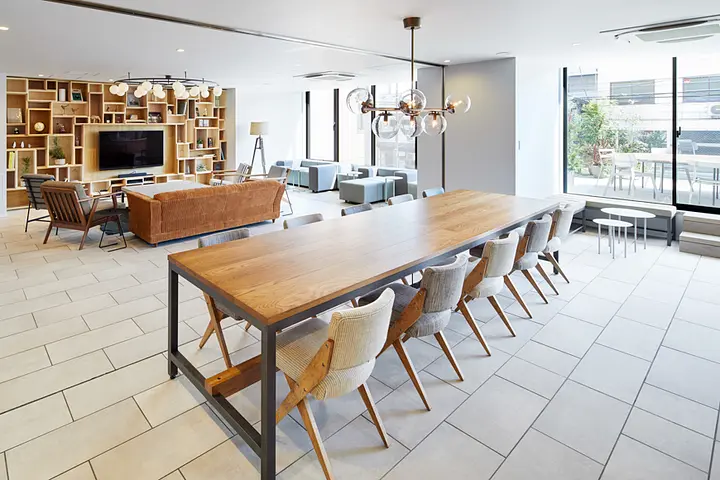
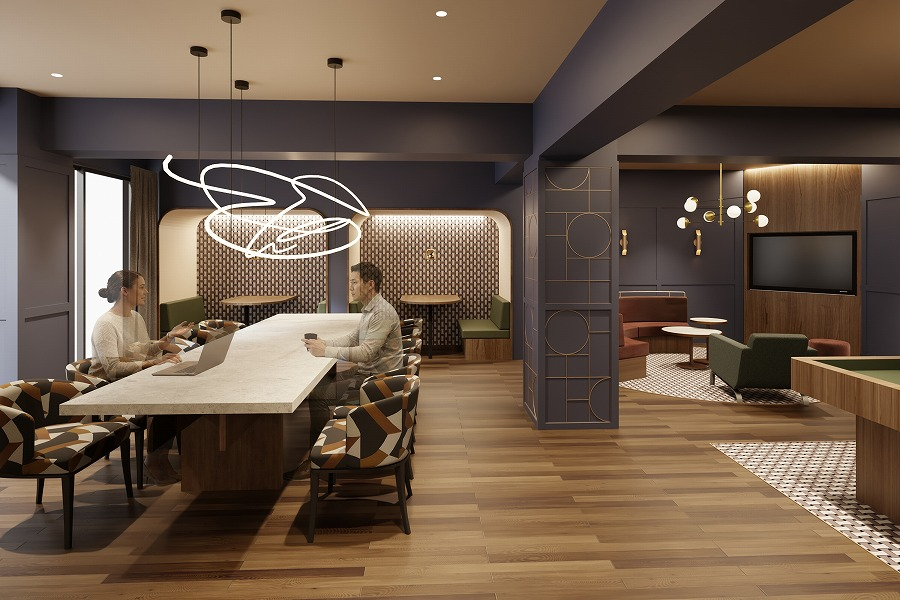
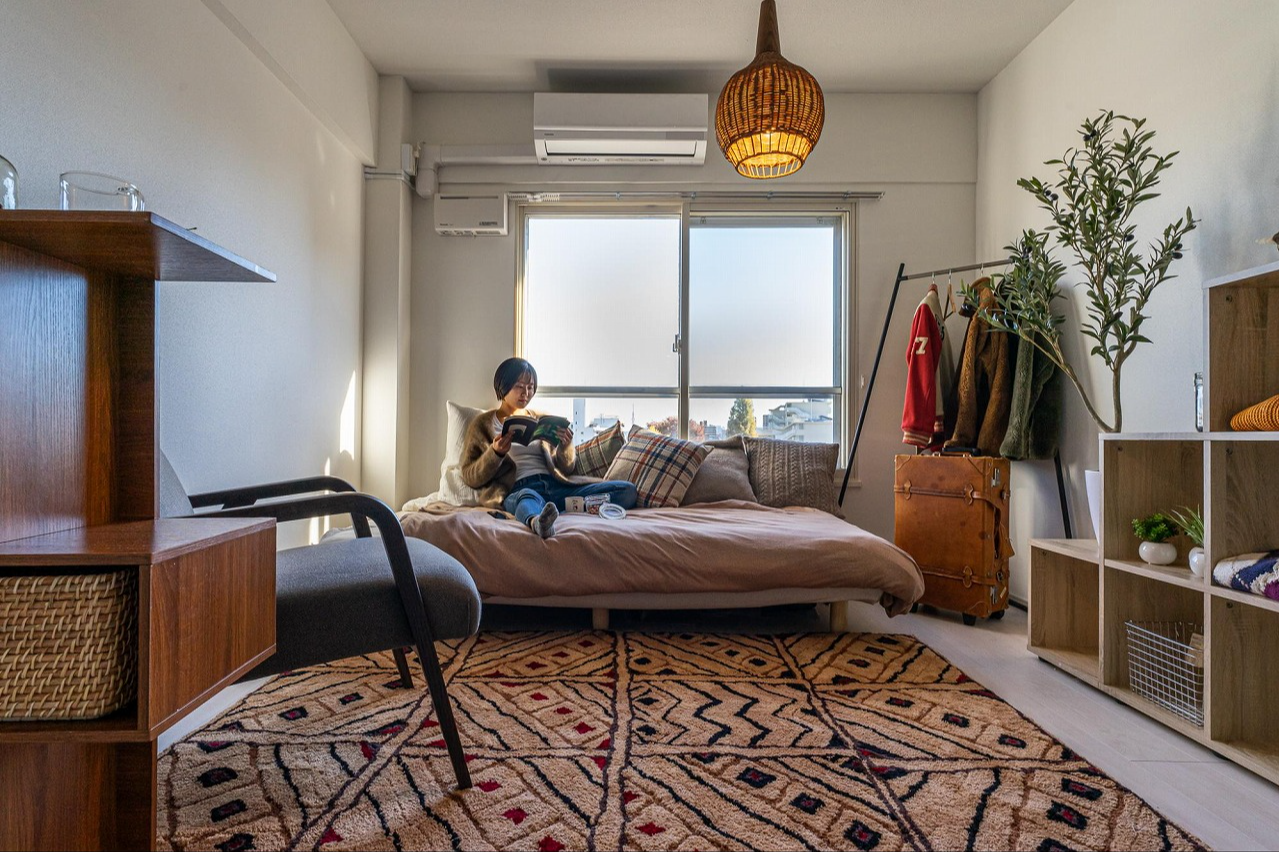


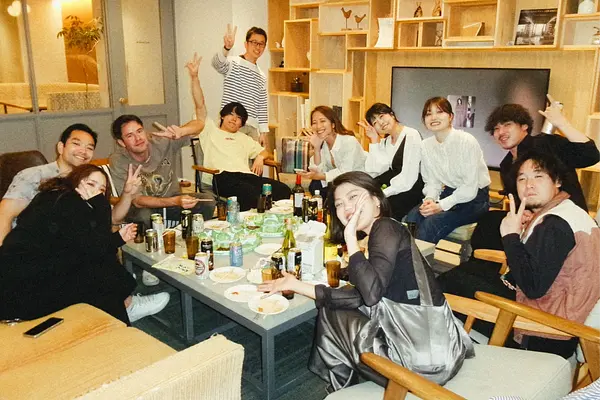

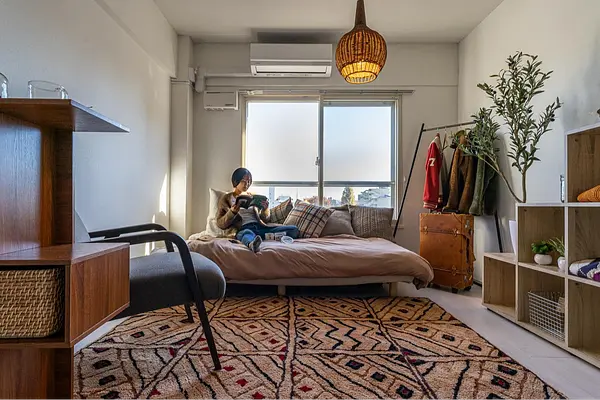










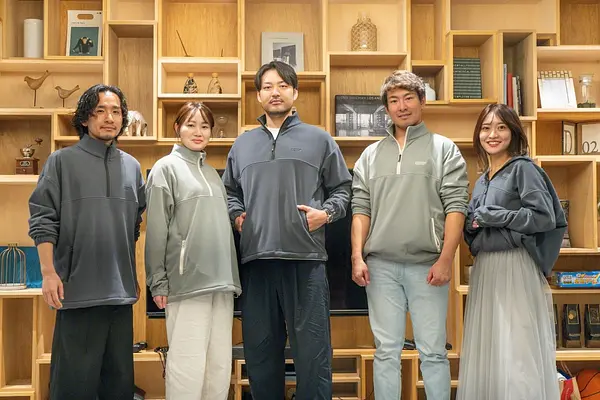
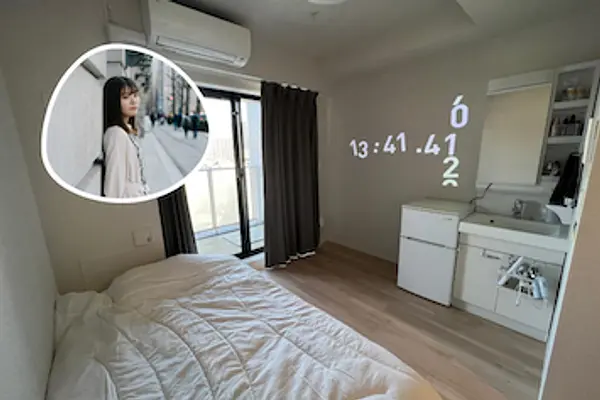



![ソーシャルアパートメントはロールモデルの宝庫。就活後に入居を決めた理由とは<後編> | ネイバーズ東十条 [インタビュー]](https://sa-site-production-strg.s3.ap-northeast-1.amazonaws.com/0klh7ktq1j5yrpyx0ob5rbo6fzcj)
![ソーシャルアパートメントはロールモデルの宝庫。就活後に入居を決めた理由とは<前編> | ネイバーズ東十条 [インタビュー]](https://sa-site-production-strg.s3.ap-northeast-1.amazonaws.com/0imxikh39n29q5cjimjm74y0zrab)
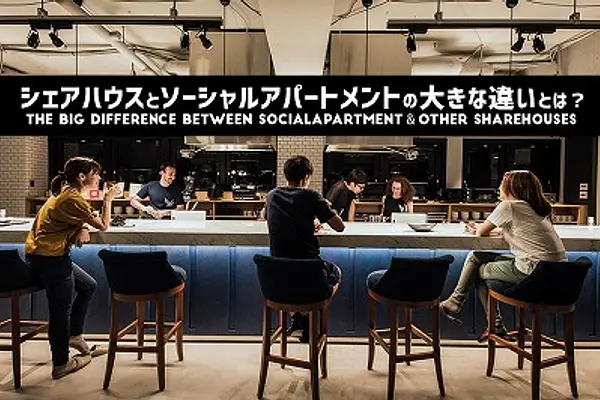
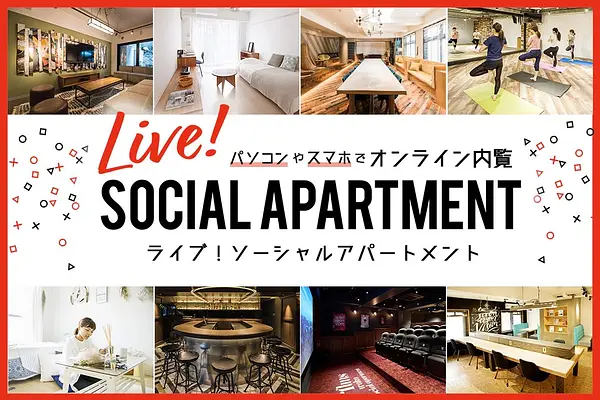
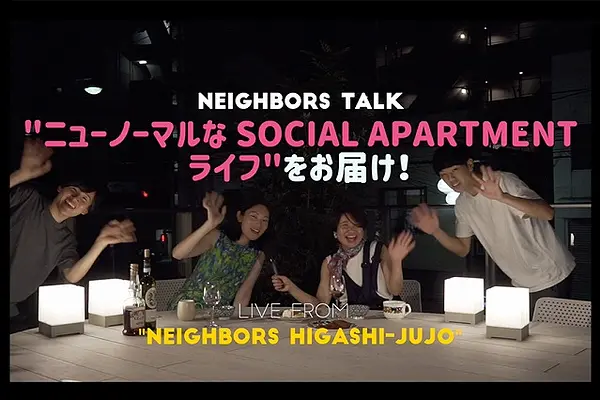

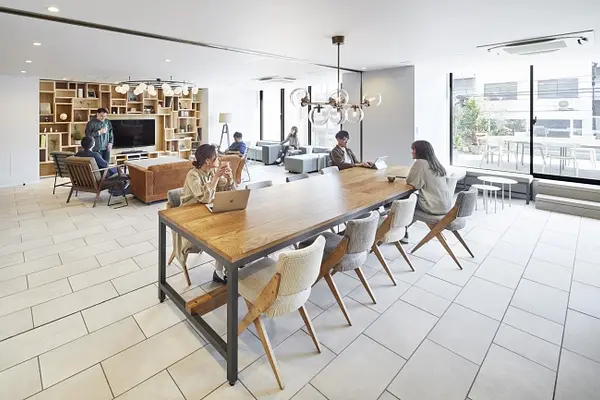





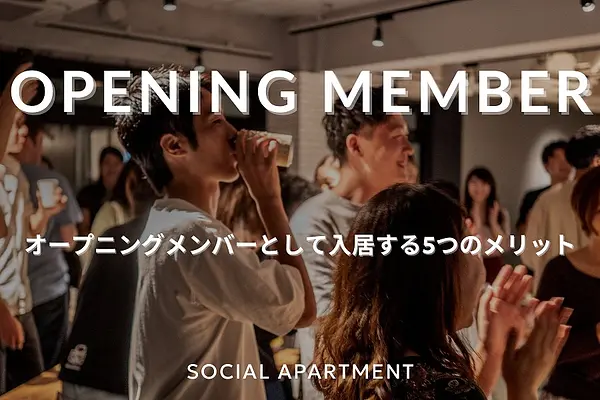

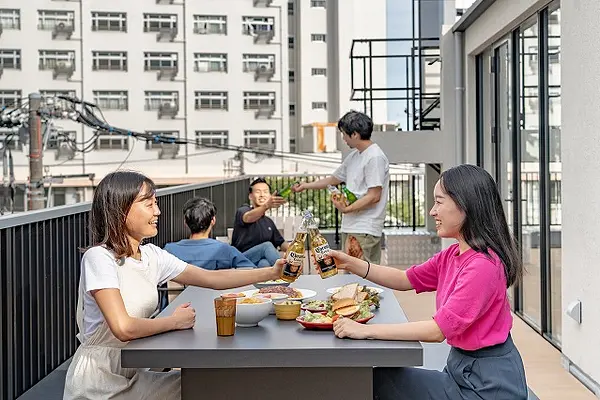



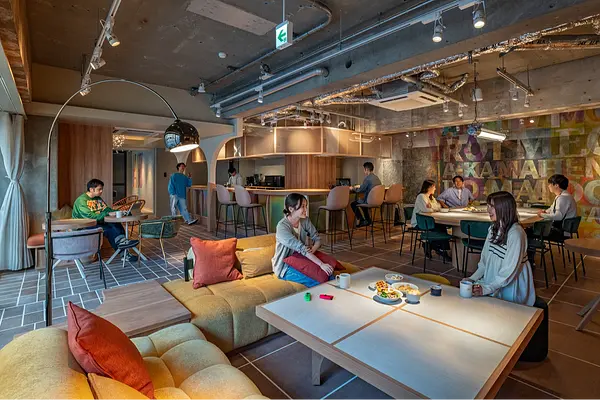

![[Neighbors Rooms] Peek Inside the Trendiest Rooms – Photo Contest Winners Revealed!](https://sa-site-production-strg.s3.ap-northeast-1.amazonaws.com/e99nv4m3rl1kbx05xxzmoox8woam)
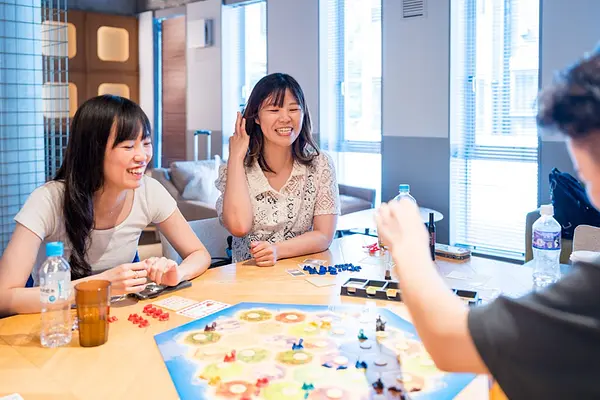
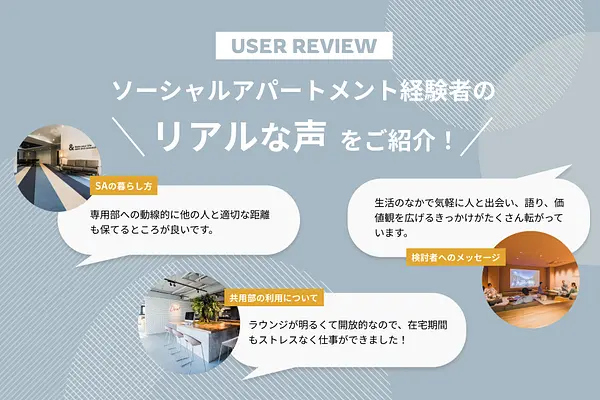
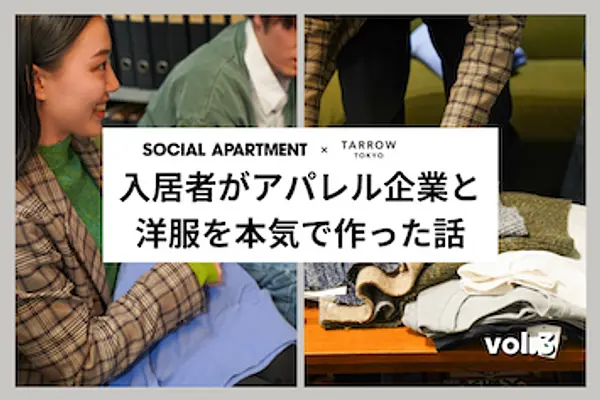
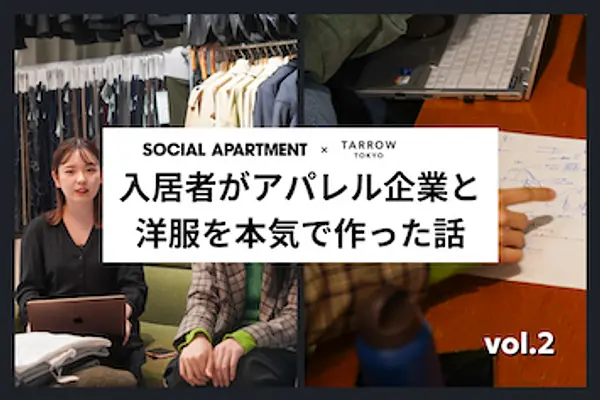
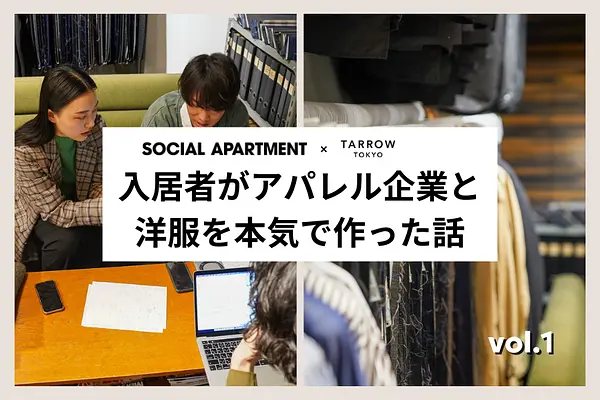
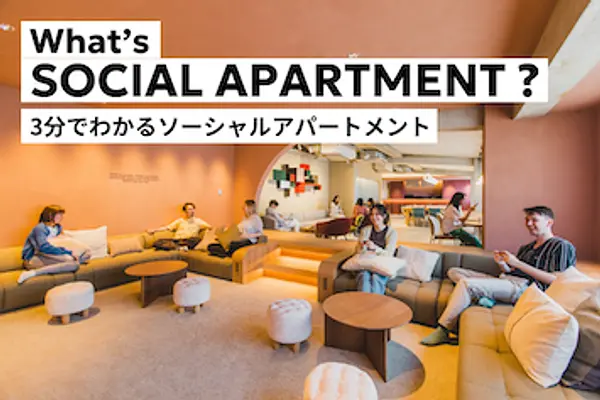

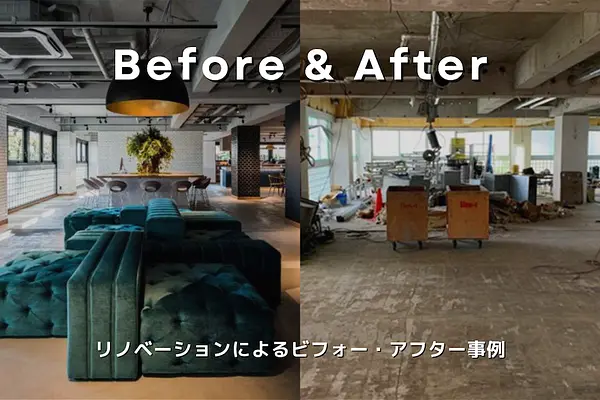
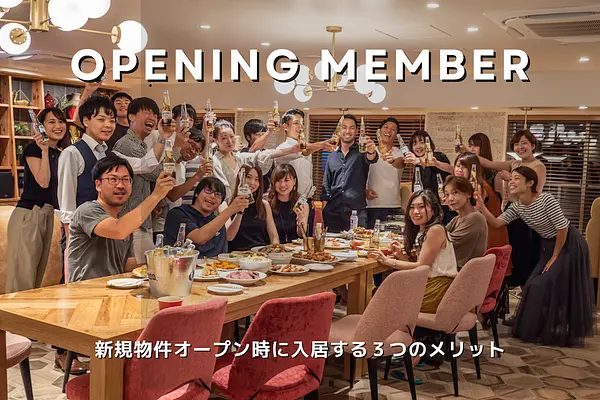

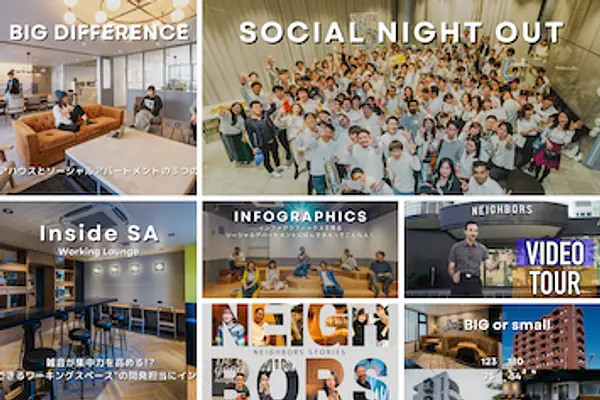
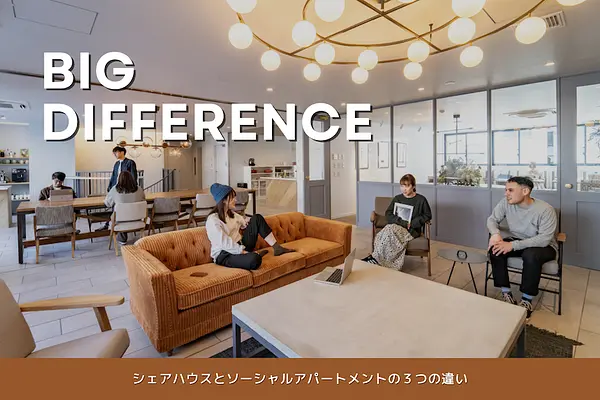

!["沖縄で交流しながらリモートワーク"SOCIAL WORKATIONの1日の過ごし方 [体験レポート]](https://sa-site-production-strg.s3.ap-northeast-1.amazonaws.com/y0wls3e6k4s9dj2uu62xeeeomld8)
![【徹底解説】"沖縄で交流しながらリモートワーク”SOCIAL WORKATIONに行ってみた [体験レポート]](https://sa-site-production-strg.s3.ap-northeast-1.amazonaws.com/vzowl7m6q3fnehprro4xr6x93x5s)

